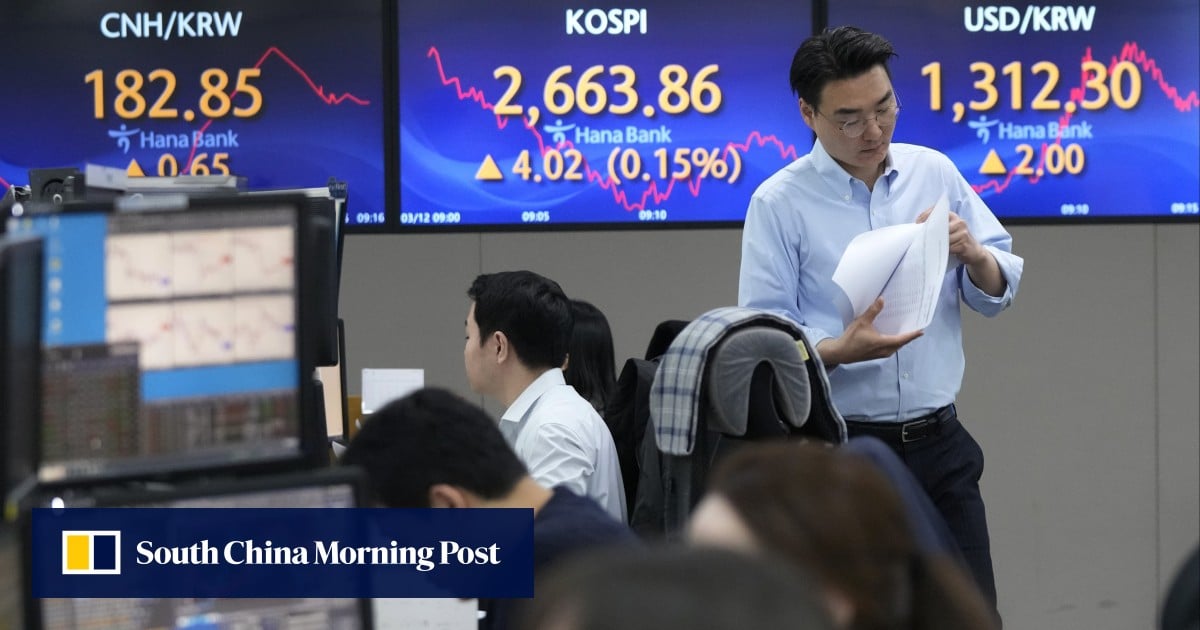
13 Mar South Korea to review risky financial products after China market slump triggers more than US$4 billion in losses
South Korea to review risky financial products after China market slump triggers more than US$4 billion in losses
South Korea plans to review the sale of potentially high-risk investments after a probe found that banks mis-sold China-linked structured products to retail investors who are facing more than US$4 billion in losses.
“We are considering a comprehensive improvement in the system across the board with a focus on preventing such an event from happening again and will also review where those products should be allowed to be sold,” Kim Soyoung, vice-chairman of the Financial Services Commission said in an interview on Tuesday.
The Financial Supervisory Service, the nation’s watchdog, said this week that it may ban the sale of these high-risk products after an investigation found some of the country’s banks and brokerages misrepresented the risky nature of the investments. Losses from securities linked to the Hang Seng China Enterprises Index are estimated at 5.8 trillion won (US$4.4 billion) this year at current levels, it added.
Korean banks hid risky China-linked notes to retirees, watchdog says
Korean banks hid risky China-linked notes to retirees, watchdog says
“While there are regulations on sales of high-risk investment products, they have not been effective in preventing mis-selling so we are looking at options for stronger enforcement measures,” Kim said. “Those who create or sell the financial investment products should think about who would be the appropriate buyers for these products.”
South Korea is a major market for complex structured products, which are readily available at banks. Equity-linked securities (ELS) have been particularly popular among middle-aged and elderly Koreans seeking extra income due to an insufficient pension system and rising living costs. These products typically combine a fixed-income component tied to the performance of an underlying asset such as an equity index.
The regulator will also consider reinforcing internal compliance rules at financial firms, Kim said. Companies have given “excessive” incentives internally during the sales of these products to boost profits.
“We have been telling banks that they need to innovate,” he said. “But whether the Hang Seng-tied ELS products have been innovative, that is not clear as that is about getting sales commissions.”
The Hong Kong-traded index of Chinese stocks has tumbled almost 50 per cent over the last three years as China grapples with sluggish growth, tensions with the US and a property crisis.

